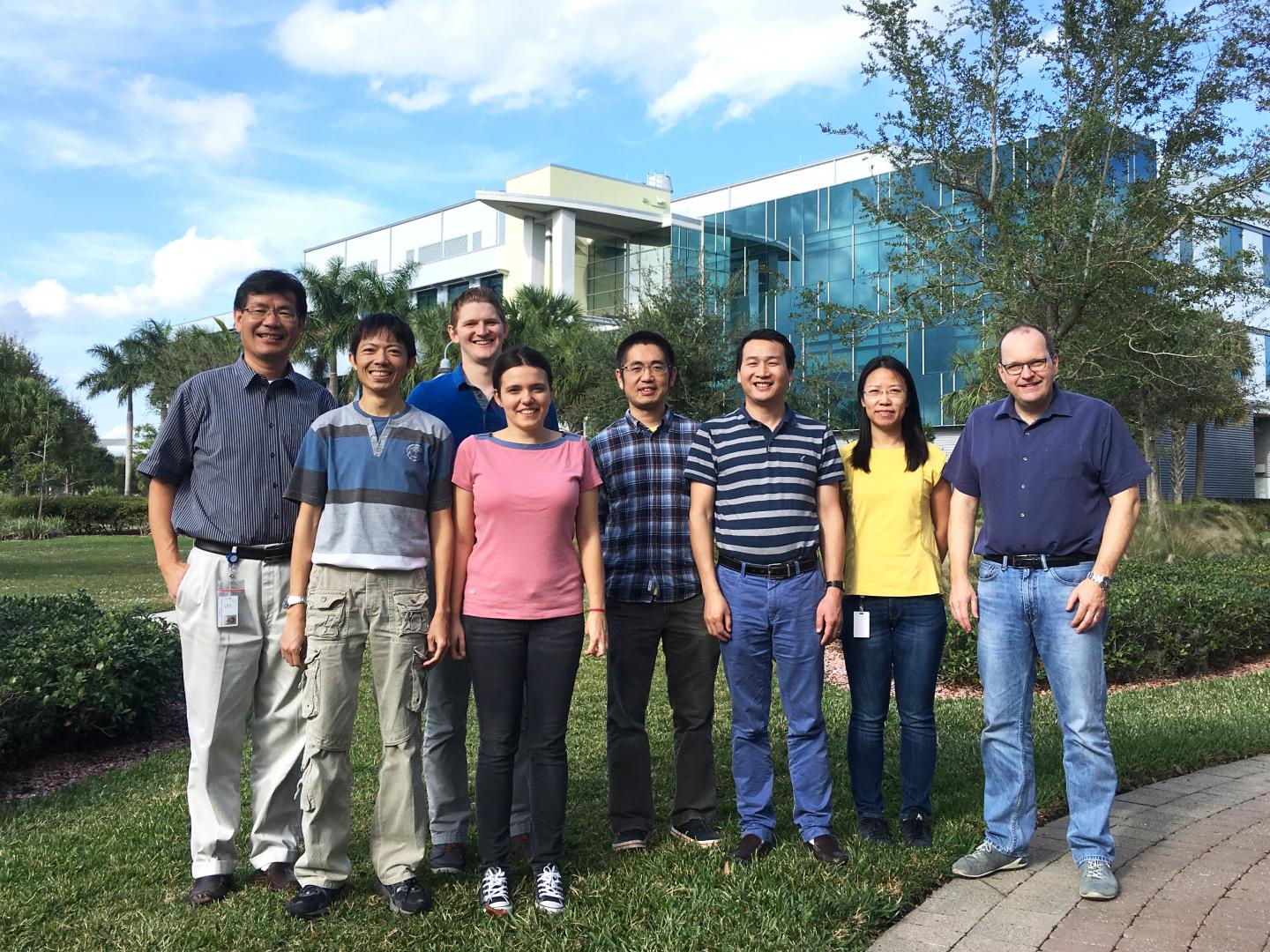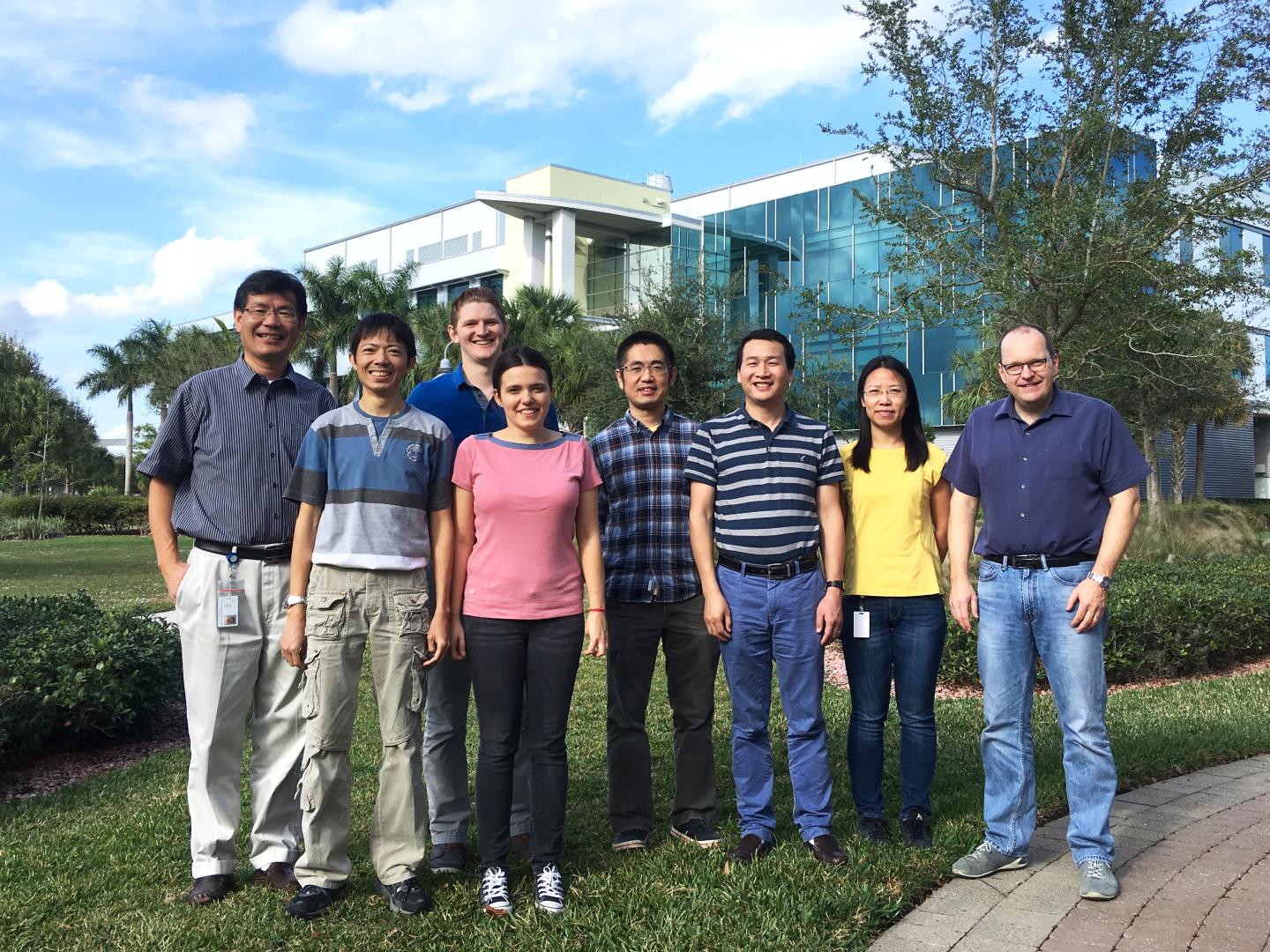
Credit: The Scripps Research Institute
JUPITER, FL – Dec. 20, 2016 – Scientists from the Florida campus of The Scripps Research Institute (TSRI) have developed an efficient process to rapidly discover new "enediyne natural products" from soil microbes that could be further developed into extremely potent anticancer drugs.
The study highlights microbial natural products as abundant sources of new drug leads. The researchers' discovery process involves prioritizing the microbes from the TSRI strain collection and focusing on the ones that are genetically predisposed to produce specific families of natural products. The scientists say this process saves time and resources in comparison to the traditional approaches used to identify these rare molecules.
The study, led by TSRI Professor Ben Shen, was published today in the journal mBio.
Shen and his colleagues uncovered a new family of enediyne natural products, called tiancimycins, (TNMs) which kill selected cancer cells more rapidly and completely in comparison to toxic molecules used in FDA-approved antibody-drug conjugates (ADCs)– monoclonal antibodies attached to cytotoxic drugs that target only cancer cells.
The scientists also discovered several new producers of C-1027, an antitumor antibiotic currently in clinical development, which can produce C-1027 at much higher levels.
It has been more than a decade since Shen first reported on the C-1027 enediyne biosynthetic machinery, and he speculated then that the knowledge obtained from studying biosynthesis of C-1027, and other enediynes, could be used for the discovery of novel enediyne natural products.
"The enediynes represent one of the most fascinating families of natural products for their extraordinary biological activities," Shen said. "By surveying 3,400 strains from the TSRI collection, we were able to identify 81 strains that harbor genes encoding enediynes. With what we know, we can predict novel structural insights that can be exploited to radically accelerate enediyne-based drug discovery and development."
"The work described by the Shen group is an excellent example of what can be achieved by coupling state of the art genomic analyses of potential biosynthetic clusters and modern physicochemical techniques," said David J. Newman, retired chief of the National Cancer Institute's Natural Products Branch. "As a result of their work, the potential number of enediynes has significantly increased."
Shen's method of strain prioritization and genome mining means a far more efficient use of resources involved in the discovery process, targeting only those strains that look to produce the most important natural compounds.
"This study shows that the potential to rapidly discover new enediyne natural products from a large strain collection is within our reach," said TSRI Research Associate Xiaohui Yan, one of four first authors of the study. "We also show the feasibility of manipulating tiancimycin biosynthesis in vivo, which means that sufficient quantities of these precious natural products can be reliably produced by microbial fermentation for drug development and eventual commercialization."
###
In addition to Shen and Yan, first authors of the study, "Strain Prioritization and Genome Mining for Enediyne Natural Products," include TSRI's Huiming Ge, Tingting Huang and Hindra. Other authors include Dong Yang, Qihui Teng, Ivana Crnovči?, Xiuling Li, Jeffrey D. Rudolf, Jeremy R. Lohman and Christoph Rader of TSRI; Yannick Gansemans and Filip Van Nieuwerburgh of Ghent University, Belgium; Yanwen Duan, Xiangcheng Zhu and Yong Huang of Xiangya International Academy of Translational Medicine, Central South University, China; Li-Xing Zhao and Yi Jiang of Yunnan University, China.
The study was supported in part by the Chinese Ministry of Education (111 Project B08034), National High Technology Joint Research Program of China (grant 2011ZX09401-001), National High Technology Research and Development Program of China (grant 2012AA02A705), the National Institutes of Health (grants CA78747 and GM115575), the German Research Foundation and the Arnold and Mabel Beckman Foundation.
About The Scripps Research Institute
The Scripps Research Institute (TSRI) is one of the world's largest independent, not-for-profit organizations focusing on research in the biomedical sciences. TSRI is internationally recognized for its contributions to science and health, including its role in laying the foundation for new treatments for cancer, rheumatoid arthritis, hemophilia, and other diseases. An institution that evolved from the Scripps Metabolic Clinic founded by philanthropist Ellen Browning Scripps in 1924, the institute now employs more than 2,500 people on its campuses in La Jolla, CA, and Jupiter, FL, where its renowned scientists–including two Nobel laureates and 20 members of the National Academy of Science, Engineering or Medicine–work toward their next discoveries. The institute's graduate program, which awards PhD degrees in biology and chemistry, ranks among the top ten of its kind in the nation. For more information, see http://www.scripps.edu.
Media Contact
Madeline McCurry-Schmidt
[email protected]
858-784-9254
@scrippsresearch
http://www.scripps.edu
############
Story Source: Materials provided by Scienmag





